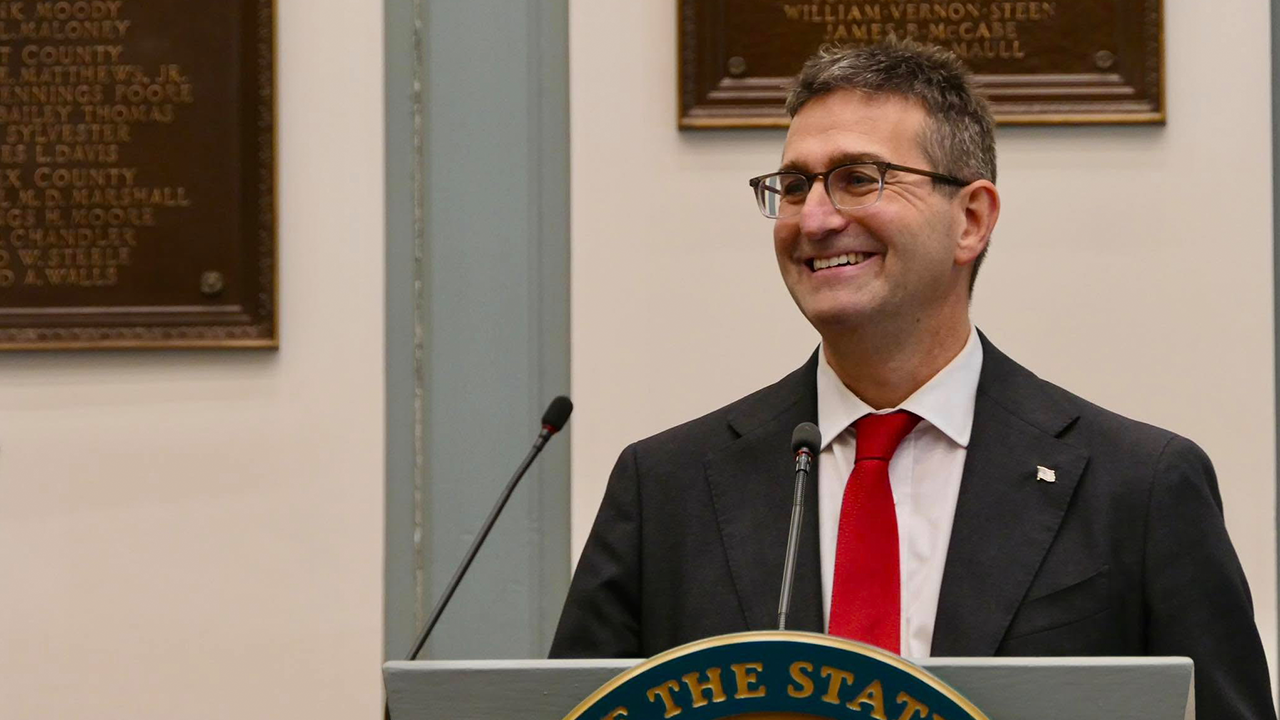South Dakota Governor Kristi Noem laid into uber-woke ice cream brand Ben & Jerry’s over the company’s infamous July 4th tweet in which it called for Mount Rushmore to be returned to Native Americans.
Noem, a Republican, called the Ben & Jerry’s bosses of being a ‘bunch of liberal Vermont businessmen’ who ‘haven’t studied our history’ and think that they ‘know everything about this country,’ during an interview with Fox News on Thursday.
The governor went on to call Mount Rushmore ‘the greatest symbol of our freedom.’
Since sending out the message on Tuesday, Unilever, which has owned Ben & Jerry’s since 2000, has lost $2.6 billion in market capital. Those shares were down .5 percent on Wednesday and down 1 percent at the start of trading on Thursday.
At the time of writing, the company’s market capital is down to $131 billion from $133.5 billion.

Since sending out the message on Tuesday, Unilever, which has owned Ben & Jerry’s since 2000, has lost a staggering $2.6 billion in market capital
‘We can learn from the men on that mountain. We can do better, but boy did they lead us through some challenging times,’ Noem added in her Fox interview in an apparent reference to the face that adorn the monument, George Washington, Thomas Jefferson, Theodore Roosevelt and Abraham Lincoln.
‘We should be proud of America and knock off what Ben & Jerry’s is doing. They don’t have any idea what they’re doing,’ the governor added.
Noem had been touted by some as a potential 2024 nominee for the Republican party having recently seen her state pass multiple populist right-wing bills including a ban on gender-affirming care for minors and sales tax cut.
Recently, the Mount Rushmore State governor said in a radio interview that she is focused on her job and that with Trump in the race, ‘right now I don’t see a path for victory with anybody else.’
The embattled brand, which was founded by longtime Bernie Sanders allies Ben Cohen and Jerry Greenwood, tweeted the message to its 494,000 followers.
The 2000 acquisition agreement between Unilever and Ben & Jerry’s gave the ice cream maker autonomy to continue its progressive social mission independently of business decisions made by its parent.
‘This 4th of July, it’s high time we recognize that the US exists on stolen Indigenous land and commit to returning it,’ the company’s official account wrote before suggesting Mount Rushmore should be handed back to its original owners.’


The ice cream brand, which has long courted progressive audiences, called for the United States to return ‘stolen indigenous land’

Ben & Jerry’s lead by CEO Dave Stever (pictured) sparked outrage on Tuesday with a tweet to its 494,000 followers

Ben Cohen (left) and Jerry Greenfield (right) – the original founders of Ben & Jerry’s. Cohen was recently discovered to be the single largest funder of left-wing foreign policy group Eisenhower Media Network

Ben & Jerry’s also cites treaties that allowed the tribes to keep Mount Rushmore and a Supreme Court decision that ruled the land had, in fact, been stolen from the Lakota tribe after they staged a sit-in in 1970

The company said the Lakota Sioux tribe referred to Mount Rushmore as Tunkasila Sakpe and that the tribe considers the land sacred
As a result, the ice cream makers are reaping a whirlwind of anger on social media.
A Twitter user wrote: ‘Ok you start. Relinquish your headquarters.’ Another wrote: ‘This should be easy then. Shut down and donate all of your land, facilities, and assets to indigenous people.’
Others called the Vermont-based ice cream giant ‘hypocrites’ while another said: ‘I’m curious, how many millions have you made by being virtue signaling grifters?’
Earlier this month, Unilever was named as an ‘international sponsor of war’ by Ukraine as the company continues to operate in Russia and is therefore subject to a new law requiring taxpaying businesses to contribute directly to the war effort.
In 2022, Unilever paid $331 million in taxes in Russia, reports The Guardian.
In 2021, Ben & Jerry’s also unsuccessfully attempted to stop Unilever from selling its ice cream in parts of Israel.
The company initially announced it would no longed sell its ice cream in ‘occupied Palestinian territory,’ areas of land that are considered part of the modern state of Israel and have been for decades.
However, the founders and their company were ultimately stopped from carrying out their goal by Israeli license-holder Avi Zinger, who has continued to produce the ice cream in his factory in the suburbs of Tel Aviv and distribute it to the Israeli settlements.
At the time, the company was slammed by some for its anti-Zionist position, which its critics said reflected anti-Semitic values.
Unilever was later found to be selling the ice cream in the area through a third party distributor.













_0.jpg?VersionId=cUUejUp1URIVr3e_d3iv5EquebDUVy7t)



















